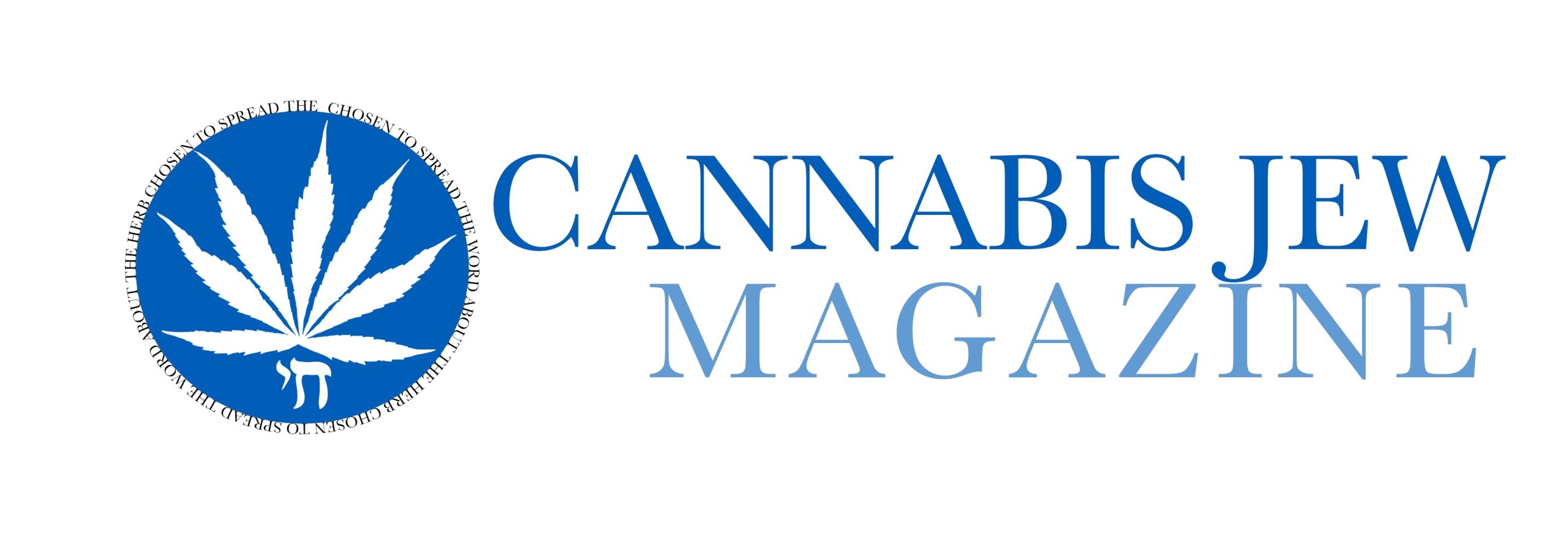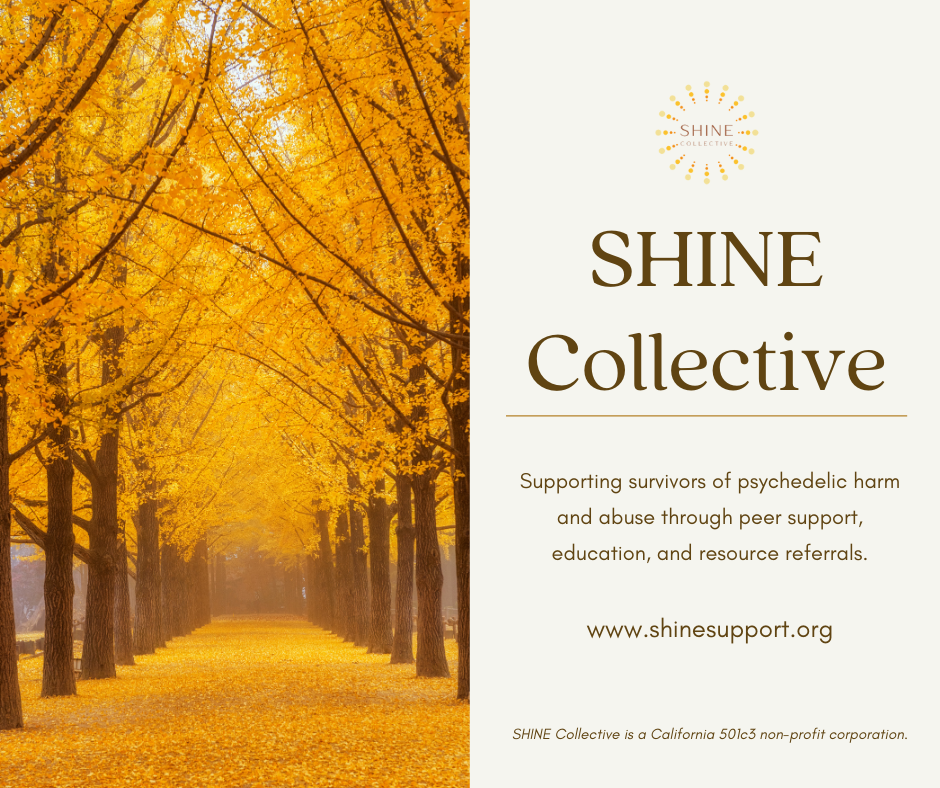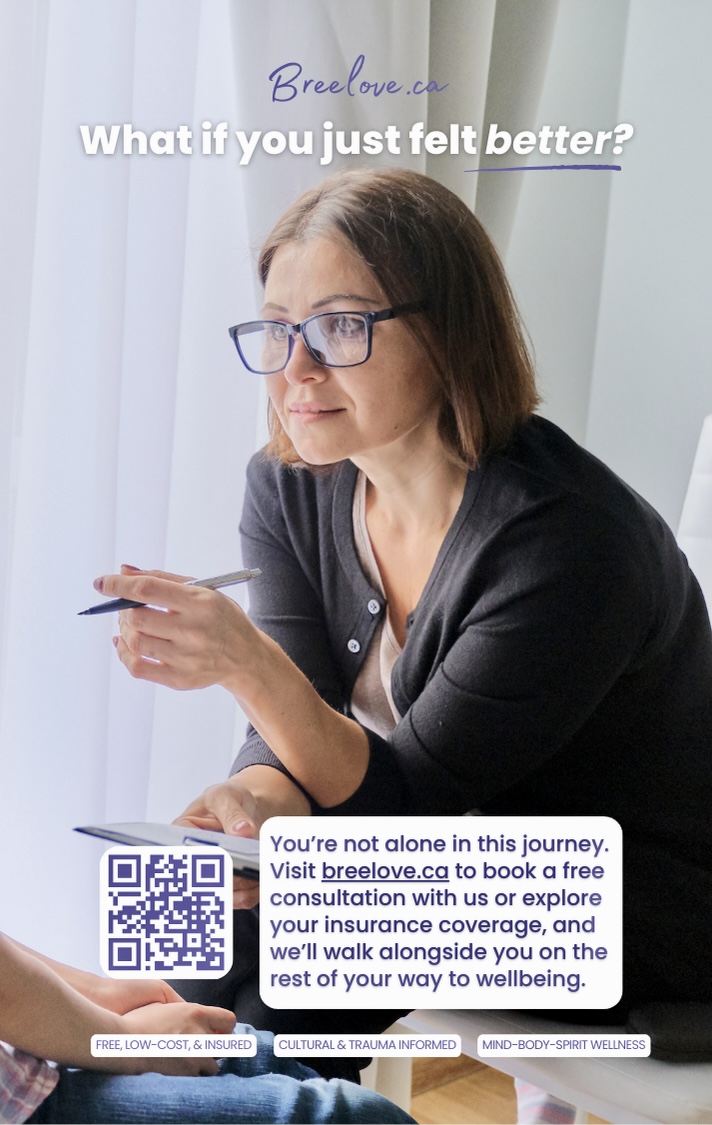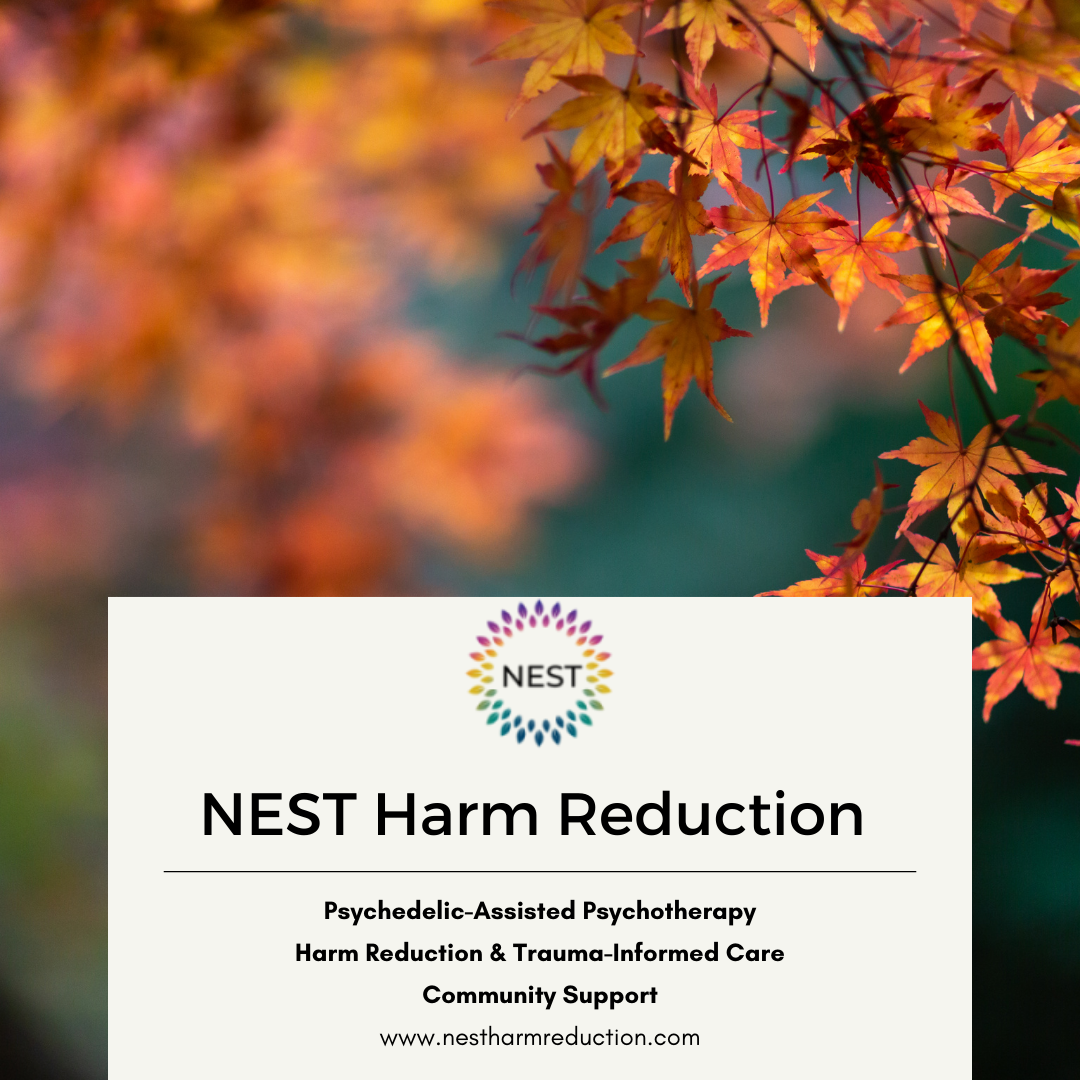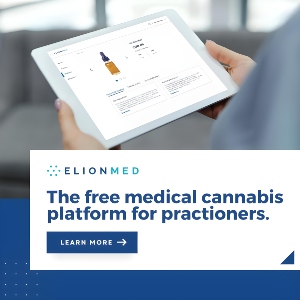Most people who work in the psychedelics industry have heard at least one story about a patient who signed up for psychedelic-assisted psychotherapy (PAP) and, instead, was sexually abused while in an altered state of consciousness. I didn’t realize the extent of the problem until it was mentioned by Caty Enders in her recent expose for The New York Times, How Psychedelic Research Got High on Its Own Supply.
The article focused on the failure of Lykos Therapeutics to get FDA approval for MDMA-assisted psychotherapy for the treatment of PTSD. Enders reports on concerns raised by an FDA advisory board regarding the quality of their clinical trials, as well as with the organizers’ lack of concern with reported incidents of psychedelic abuse. Here it’s important to remember that reported cases of psychedelic abuse likely represent only a fraction of the actual cases.
This led me to think about sexual assault as a regular problem in the psychedelics industry, connected to taken-for-granted practices and assumptions that perpetuate and obfuscate its reoccurrence. This is the sense in which the psychedelics industry has a #MeToo problem that requires a serious reckoning among practitioners, rather than dismissed as an occasional problem.
I know what it’s like to be assaulted by someone you once trusted as someone who could never do that. I still haven’t recovered, and this is the source of my anxiety about how few people are talking about psychedelic abuse in an industry composed of self-proclaimed healers. It’s also based on my experience with the difference between consuming cannabis, which acts to “restore the self,” and other psychedelics that blur the boundary between self and others.

My concern was echoed in Enders’ article, which included a cautionary quote from Sidney Cohen, a leader in psychedelic research, who in 1963 warned about the risks posed by certain psychedelic therapists:
“The trouble is, LSD attracts unstable therapists as much as it does the neurotic patient. It gives them an intoxicating sense of power to bestow such a fabulous experience on others.”
To clarify my own position, I’ve been wary of using psychedelics ever since a few bad trips in college (never again!), and a dependency on ecstasy in the late 90’s to get-through my PhD program in philosophy—as the only woman in my cohort of white men on fire for Kant and Heidegger. That being said, I’m hopeful that someday I’ll take a medically-assisted psilocybin trip to help alleviate the symptoms of cPTSD.
This hope is based on my own limitations and what I’ve learned after three decades of trying to heal from violence that I cannot remember nor forget. Between the awareness of what I’ve survived and the persistence of sensory flashbacks, I can feel the brain injury of burnt-out neurons that I cannot fix with more therapy. On a theoretical level, it makes sense that with a controlled dose of psychedelics and a therapist who can guide the process, it’s possible to gain a different perspective on the source of my trauma that could—over time—help stimulate neural growth to replace the faulty wiring that binds my mind to loops of negative thoughts about the past.

At the same time, I’ve been wary of an industry that often describes the promise of psychedelics in messianic terms, as drugs that can cure mental disorders and create a better, more peaceful world.
There are already long-form articles and podcasts that review the details of multiple cases of psychedelic abuse from medical and non-medical professionals. There are also a few researchers and practitioners sounding the alarm. In their peer-reviewed article on “Psychedelic-assisted psychotherapy, patient vulnerability and abuses of power” (2024) in Australian & New Zealand Journal of Psychiatry, Sally Meikle, Olivia Carter and Gillinder Bedi argue that sexual abuse is, indeed, a structural rather than episodic problem in PAP due to certain aspects of the practice that increase the vulnerability of patients and the potential for power imbalance in the therapist-patient relationship.
They recommend reassessing protocol and specific practices—like the use of “nurturing touch”—that are particularly problematic in the effort to respect boundaries when the patient is in an altered state that precludes informed consent.
The creation of SHINE Collective, a non-profit organization founded by Erica Siegal, has been the most significant effort to address the causes and harm of psychedelic abuse. SHINE provides peer-led, no-cost support groups and educational resources to survivors of psychedelic harm and psychedelic facilitators.
When I contacted Siegal to ask a few questions about psychedelic abuse, she explained the need for better training and resources for victims:
“There are many people, especially women and BIPOC individuals who have been harmed or traumatized by a medical professional and do not feel comfortable or safe to engage in healing in an environment that was a place of previous trauma. Many medical professionals don’t have the training or lived experience of working with psychedelics and aren’t trained to manage situations of psychedelic distress.”
SHINE is the only organization devoted to addressing psychedelic abuse as a systemic problem, as well as providing the support and resources to help victims, raise awareness, and change the culture.
The problem of psychedelic abuse is not new, and we need to question the “common sense” that reproduces the conditions that enable it to happen. We also need to reassess how we talk about healing, and drugs, in the discourse surrounding the therapeutic value of psychedelics.
For help with this process, I reached out to three medical professionals who practice PAP in Canada, Mexico and the United States with a series of questions that occurred to me when I thought about psychedelic abuse as a systemic, rather than episodic problem. The answers provided by Erica Siegal, Kayla Breelove Carter and Erica Zelfand helped me better understand the promise and perils of psychedelics—especially for those who suffer from PTSD.
My first question concerned why it’s therapeutic to take a drug like MDMA that (for a few hours) relaxes our boundaries from an altered state of consciousness. How does this actually promote healing?
Carter is a clinical traumatologist and certified psychedelic assisted therapist in Nova Scotia who emphasizes the importance of ancestral healing traditions for the therapeutic use of psychedelics. Her website Breelove.ca also offers a variety of resources and online support to people with post-traumatic stress, as well as the opportunity to connect with others in a safe, online community designed for collective healing. She provided a way I could think about the use of psychedelics as a means to explore rather than transform part of the mind:
“Trauma often keeps us in a state of hypervigilance or shutdown, where our ego can be either amped up, so hyper-aroused, or shut down, hypo-aroused. Both of these extremes keep us stuck in survival mode, so it makes it really hard to feel safe or regulated. So when a substance like psilocybin or other known psychedelics such as MDMA quiets that ego and fear responses, it creates this opportunity to explore our inner world without that constant sense of threat. It’s like giving ourselves space to make sense of what we’ve been through, whether that means accepting, releasing, or reframing experiences.
Now, is there a danger? Absolutely. But it really depends on how and who’s holding the space and what your mindset is going into that space. So preparation is so important. This work is not a one-size-fits-all kind of deal. So for me, working with psilocybin, I’ve seen firsthand how important it is to enter these experiences with care, with intentionality and proper support.”
Dr. Zelfand is a family doctor with a practice in Mexico, specializing in integrative mental health and functional family medicine. She also provides training to psychedelic facilitators with Right to Heal, and emphasizes the importance of this preparation and the “therapeutic alliance” between practitioners and patients:
“MDMA is what’s called an empathogen or an entactogen. It’s a drug that helps us feel connected to ourselves, feel connected to others. And it really primes us for healing relational wounds. So much of trauma is a relational wound. Even if there was no other person directly involved in the injury or the trauma that caused PTSD, there can still be a harm in relation to oneself, or harm in relation to trust in God, or trust in the universe or trust in nature. And MDMA is a wonderful tool for healing relational injury. Another way that MDMA can benefit is through the effects, through oxytocin, through alpha activity.
And with that increase in oxytocin that’s experienced in the MDMA state, there’s also a stronger feeling of teamwork with the therapist, something called the ‘therapeutic alliance,’ essentially working together on this very important project of healing the patient and leveraging the therapist as an ally, as a cheerleader, as a human with a heartbeat who can help heal a relational wound.
That’s also where we, of course, are running the risk of ethical quandaries and abuses of power, because if you are a therapist and you have a client who has their nice little oxytocin brain bath, you really want to stay clean in how that relationship unfolds and how you hold their trust and how you hold their vulnerability. And this is where the moral compass of the therapist is paramount, and why training is really important so that it’s about the client healing and not about the therapist getting an ego boost or something potentially more harmful than that.”
My second question concerned the limits of psychedelics and the claim that they can “cure” mental disorders like PTSD. I don’t think there’s evidence to support this claim, and it reinforces my concern that the use of psychedelics can confuse the difference between coping-with and healing-from pain.
Siegal is a psychotherapist, harm reduction advocate, and a psychedelic-assisted psychotherapist who founded Nest Harm Reduction and practices in California. She clarified the sense in which psychedelics can assist with healing from mental disorders:
“Those who are claiming “miracle cures” are misleading. There’s a reduction in symptoms in a patient to the point where they ‘no longer qualify’ for a diagnosis.”
Carter emphasized that psychedelics are tools that can facilitate an integrated process of healing that starts before and continues after a medically-assisted psychedelic journey:
“Medicines like psilocybin and also substances like MDMA are powerful tools. They can make you feel better because they stimulate serotonin receptors, which is why you might feel that initial boost. But healing, in my view, goes beyond just feeling better in the moment. It’s a process that involves working on all levels, cognitively, emotionally, as well as physically and spiritually. You can’t just rely on the medicine alone to do the work. That’s where conscious integration comes in, which is deeply understood in indigenous and ancestral healing traditions.
These medicines can open the door to seeing things differently, but healing is an ongoing process. And it’s a combination of the inner work you do in and out of the altered state. I think the commercialized side of the industry does sometimes overstate the idea of these medicines being a cure for post-traumatic stress or other mental disorders.”
My last question concerned the lack of concern about trauma-informed care in the psychedelics industry. As an example, I asked: why is it so rare to see women’s only spaces for a safe, psychedelic journey? This seems especially important in an altered state of consciousness that may “unlock” repressed memories of assault. This concern also informs Siegal’s work and focus on harm reduction, as she explained:
“This is the work I do at NEST Harm Reduction and SHINE Collective, raising awareness around safety, risks and ethical care. Trauma-informed care is vital to helping people heal, but isn’t widely taught or practiced at this point. I know of many places that offer women-only retreats or [therapeutic] work, and I hope that as we move forward we have the ability and access to create safer spaces for all.”
Zelfand elaborated on the importance of training, education, and preparation for a safe, therapeutic experience with psychedelics:
“In terms of repressed memories of traumas, sexual assaults, and things like that, those can be very destabilizing and rattling when accessed, and ultimately that is the path of healing when they arise. It’s like lancing an abscess. It hurts and it’s gross, but if you don’t do it, then that abscess is just going to foster a stealth infection.
I know there’s kind of this movement away from therapizing the revolution. And that can cause harm because, as you mentioned, you don’t know what you’re going to unveil when you get in that space. And also, how do you even know if it was true or if it’s just something you saw in a visual during your trip? Did it actually happen? Navigating that can be really tricky, and that’s where having a trained professional on board becomes important.
Now, the medicine helps us feel safe, but the medicine really only works if we can release and let it work. So that’s why—especially with PTSD-–it’s worth it to interview a few people and ask them questions: Can I create a therapeutic alliance with this person? Is this someone who I can trust not to touch me inappropriately or look at me inappropriately in a sexual way when I’m in this vulnerable state? And that can be tricky because the traumatized brain perceives threat, even in situations where there isn’t threat. And when the traumatized brain perceives threat, it heightens the alarm system and then starts screening for more threat.
And this is why it can be hard to treat, but it’s also why individuals with PTSD don’t reach out and don’t engage in healing work because of this fear. So there is a leap of faith. And I really hold the beauty and the vulnerability of that leap of faith in the work that I do with my patients.”
Carter emphasized the importance of context and cultural awareness to the ability to respect boundaries and create safe spaces for psychedelic treatment:
“The idea of boundaries is crucial, and that’s why the context of who’s leading these experiences really matter. This isn’t just about random guides pitching themselves. It’s about understanding that there needs to be trauma-informed care, safe spaces, including women-only spaces if needed, and a real acknowledgement of gender trauma and historical context as to why it is that we need women-only spaces or men-only spaces or racialized-only spaces.
This isn’t about just doing the work, but making sure the work is safe and meaningful. We’re really in a time where a lot of these medicines are being pulled into the mainstream, but the cultural and ethical implications are often left out, and that’s why these conversations are so important.”
The FDA’s rejection of Lykos’ application for approval of its MDMA-assisted psychotherapy will not forestall the psychedelic revolution well on its way — especially in the Jewish community, since so many of us suffer from generational trauma and bad epigenetic luck. But it does offer an opportunity for the industry to reassess how PAP is described and promoted to the public, and take seriously the problem of psychedelic abuse. In particular, the industry should take a lead from medical professionals such as Siegal, Carter, and Zelfand who foreground the importance of a trauma-informed approach to PAP for a safe, therapeutic trip.


In order to stay connected with the Canna-Jewish community, sign up to receive The Canna-Jewish News delivered right to your inbox. To learn more about the role of cannabis in the Jewish tradition, check out our new online course The Jewish Relation to Cannabis, sold with the Yeshiva Subscription to Cannabis Jew Magazine.
